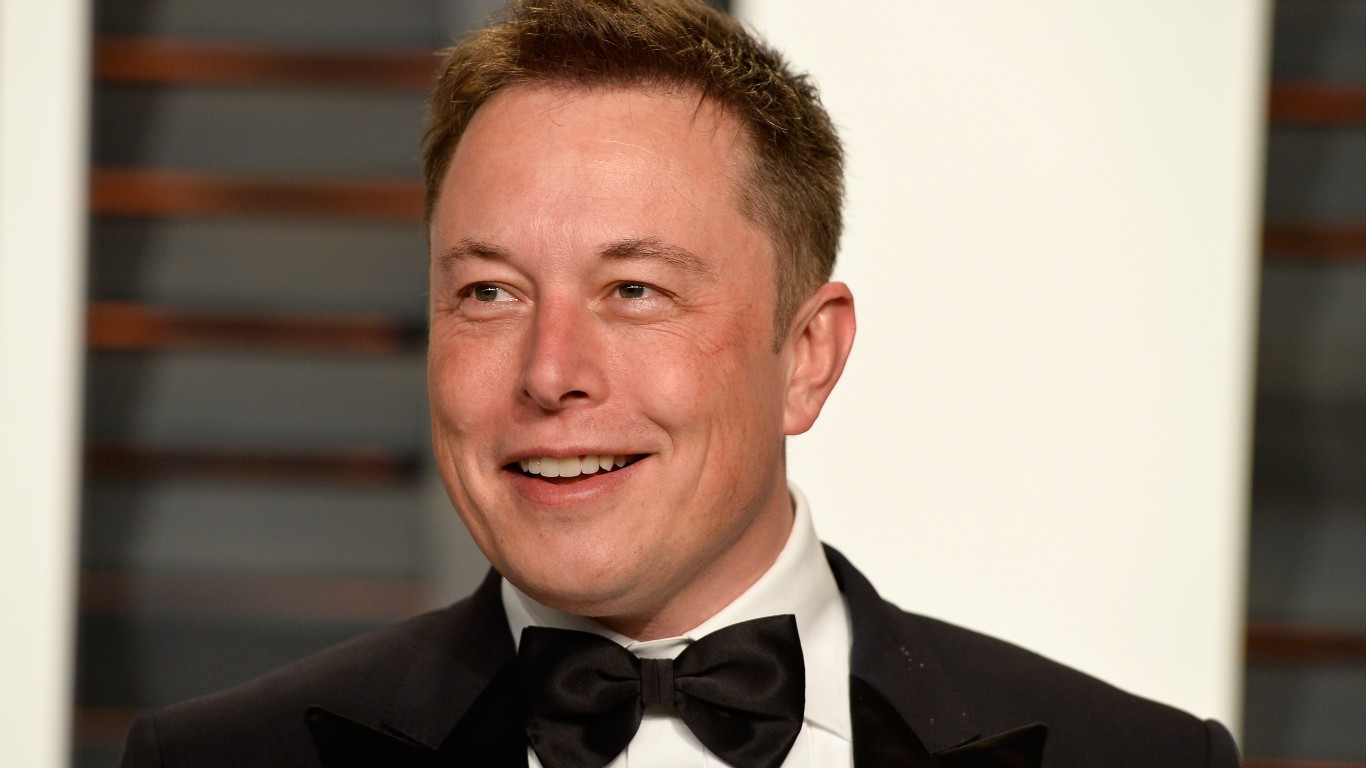
Elon Musk’s Tesla (NASDAQ: TSLA) has achieved significant milestones, including becoming the world’s most valuable automaker and seeing substantial success with the Model Y. Despite these accomplishments, there are growing concerns about Tesla’s future, highlighted by a recent KPMG survey. Key issues include a persistent preference for gas vehicles, low EV purchase intent, a global EV demand slowdown, and rising interest rates affecting vehicle financing. Consumers also express dissatisfaction with charging times and prioritize safety and convenience features over self-driving capabilities. These factors suggest a challenging period ahead for Tesla, with increased competition and the need for significant innovation to maintain its market position.
Transcript:
Elon Musk has done the impossible with Tesla.
He’s turning to the most valuable automaker on earth while introducing the world to EV self-driving and did so, you know, Austin let’s face it.
Well, juggling an impossible amount of billion-dollar companies.
When we look at his success, the model Y even broke 1.2 million registrations in 2023.
I went to the store earlier. It was all Model Ys. It shocked me.
But even with all the success, the tide seems to be turning, Austin.
So the question is, what’s going on with Elon Musk, especially if we look at Tesla’s stock chart this year, which shows kind of the direction it’s been headed?
Yeah, you know, look, we don’t want to take anything away from Elon Musk’s success, but investors today are kind of having a “what have you done for me lately” moment.
And hey, investments are all forward-looking, so they have to consider it that way.
So we’re looking at a recent survey from KPMG, which indicates that this enormous growth from Tesla and the Model Y and the Model 3 in particular may have just meant early saturation due to early adopters.
And the data suggested a few interesting conclusions.
One is that there’s still a preference for gas vehicles among the majority of Americans.
We knew the EV adoption would take a long time, but people have been saying it would take a long time for roughly a dozen years.
The fact is that the majority of Americans still prefer standard gas vehicles over hybrid or electric vehicles, and that’s even when accounting for parity of price and features, which EVs are still a little bit on the expensive side.
That’s one really damning data point to come out of this KPMG study.
The second one is that there’s a very low EV purchase intent today.
Only 20 percent of the customers they surveyed would choose an EV over a gas or a hybrid vehicle.
Now, it’s also worth noting that hybrids are going gangbusters right now with some very good options out there, particularly from Toyota.
That may actually tilt any EV in favor of a hybrid, which is a more familiar option when you’re coming from an internal combustion engine vehicle.
Low EV purchase intent was the second conclusion.
The third one is that frankly, there’s a global EV demand slowdown and the preference for gas vehicles aligns with this global reduction in EV demand.
We’ve seen automakers like Ford, GM, Mercedes, all reconsider and in many ways pull back their EV strategies in light of this waning demand.
Additionally, nearly 80 to 90% of new vehicle purchases are financed.
And at least in the United States, when we see the rise in interest rates, that kind of puts a wet blanket on all new vehicle demand period, not just EVs.
And Tesla, they are still an automaker. So they are subject to those same sort of waxing and waning in the industry.
Number four is just a difference of charging time expectations.
Eric, I know you and I both drive EVs and it is a bit of an adoption getting used to charging times.
It looks like most consumers and industry expectations are still pretty far off when it comes to road trips.
Sixty percent of US consumers want charging in 20 minutes or less, which for any long-distance road trip, it’s simply not practical.
And the last one is feature prioritization.
So this KPMG study revealed that consumers show a much lower likelihood to pay and be interested in self-driving and entertainment features, which Tesla has really hyped and prioritized relative to other automakers.
Instead, it looks like consumers, at least in the EV shopping space, are looking for safety, Wi-Fi, and charging locator features, which are really just kind of non-differentiated factors among the automakers right now.
Most EVs tend to be safer than internal combustion engines.
So none of those elements are differentiators for Tesla per se, although their vehicles are quite safe.
So in short, Tesla and Elon Musk have done amazing things.
But this data from KPMG really looks like it’s going to be a rough stretch ahead for Tesla.
And they can’t lean on their higher margin vehicles like the Model X and Model S to pad waning sales for the Model Y or Model 3 because those are kind of tired models right now, at least by automotive standards.
And they simply just don’t sell enough units.
And this is all not to mention competition that’s coming from Lucid, BYD, Rivian, and others.
So really, what we’re looking at is choppy waters for Tesla for the next few years.
Yeah. And Austin, I think about what point that Elon Musk has often made is electric vehicles don’t need to be as good as gas cars to get adoption.
They need to be better.
And we really saw a slowdown in things like the amount of miles per dollar that EVs were offering.
We’re seeing a lot of innovation from China that’s probably not going to come to the US because of some tariffs here, but some cars from BYD offering more than a thousand miles per charge with the powertrains they’re using.
So I think Tesla is frankly going to need to up the level of innovation, the breakthroughs that are happening because consumers they’re just speaking.
They’re not going to be buying electric vehicles with the current feature set without some massive improvements per dollar.
So I think, you know, that’s one thing that Tesla investors have to be watching whether or not they’re seeing acceleration and some of the features in cars.
100 Million Americans Are Missing This Crucial Retirement Tool
The thought of burdening your family with a financial disaster is most Americans’ nightmare. However, recent studies show that over 100 million Americans still don’t have proper life insurance in the event they pass away.
Life insurance can bring peace of mind – ensuring your loved ones are safeguarded against unforeseen expenses and debts. With premiums often lower than expected and a variety of plans tailored to different life stages and health conditions, securing a policy is more accessible than ever.
A quick, no-obligation quote can provide valuable insight into what’s available and what might best suit your family’s needs. Life insurance is a simple step you can take today to help secure peace of mind for your loved ones tomorrow.
Click here to learn how to get a quote in just a few minutes.
Thank you for reading! Have some feedback for us?
Contact the 24/7 Wall St. editorial team.




